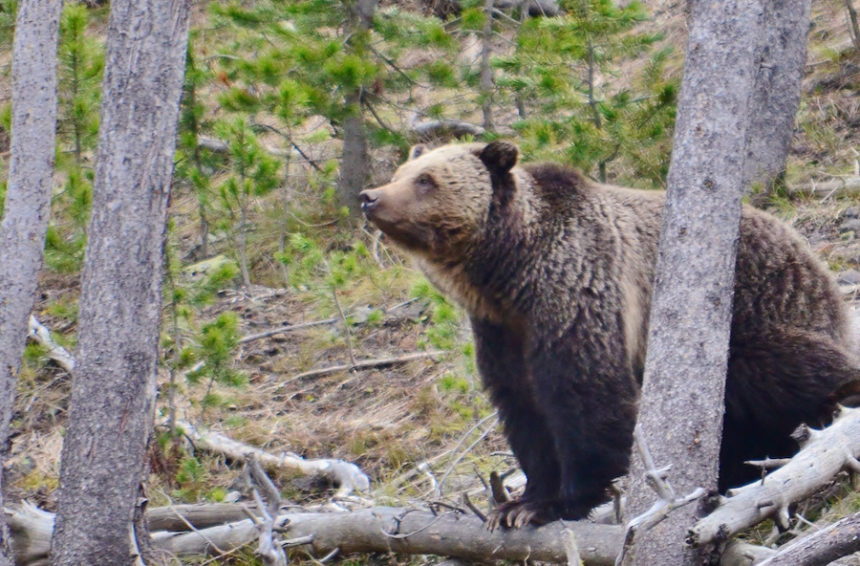
The following is a news release from the Idaho Department of Fish and Game.
ISLAND PARK – On May 21, Idaho Fish and Game in cooperation with the U.S. Fish and Wildlife Service euthanized a sow grizzly and a yearling male after they had become food-conditioned and increasingly sought out human food sources. The sow and yearling began frequenting residential neighborhoods where they became habituated to human food sources after receiving multiple food rewards from porches, unsecured garbage cans and vehicles.
The sow grizzly was originally captured and relocated in 2020 following multiple food-related conflicts. Subsequently, in 2021 the sow and cub were involved in multiple conflicts where food rewards were obtained. This spring, the pair displayed similar behavior. Due to the pair’s dependence on human food and habituation to residential areas, they were captured and euthanized in the interest of human safety on May 21.
Because Island Park is home to both grizzly and black bears, residents and visitors are strongly encouraged to store all residential garbage containers inside a garage or locked shed. Garbage containers should only be put out the morning of pick-up, not the night before.
Bears are extremely adaptable and can learn very quickly to associate people with food. The presence of unsecured food sources of human origin such as residential garbage, bird seed, dog food, beehives, domestic poultry, or fruit trees have long been documented as sources of human-bear conflicts. Food-conditioned bears can rapidly lose their fear of humans, resulting in bears approaching people and ultimately putting the lives of both humans and bears at risk.
Grizzly bears in Idaho are federally protected under the Endangered Species Act and management actions are therefore done in consultation with the U.S. Fish and Wildlife Service.
ISLAND PARK – On May 21, Idaho Fish and Game in cooperation with the U.S. Fish and Wildlife Service euthanized a sow grizzly and a yearling male after they had become food-conditioned and increasingly sought out human food sources. The sow and yearling began frequenting residential neighborhoods where they became habituated to human food sources after receiving multiple food rewards from porches, unsecured garbage cans and vehicles.
The sow grizzly was originally captured and relocated in 2020 following multiple food-related conflicts. Subsequently, in 2021 the sow and cub were involved in multiple conflicts where food rewards were obtained. This spring, the pair displayed similar behavior. Due to the pair’s dependence on human food and habituation to residential areas, they were captured and euthanized in the interest of human safety on May 21.
Because Island Park is home to both grizzly and black bears, residents and visitors are strongly encouraged to store all residential garbage containers inside a garage or locked shed. Garbage containers should only be put out the morning of pick-up, not the night before.
Bears are extremely adaptable and can learn very quickly to associate people with food. The presence of unsecured food sources of human origin such as residential garbage, bird seed, dog food, beehives, domestic poultry, or fruit trees have long been documented as sources of human-bear conflicts. Food-conditioned bears can rapidly lose their fear of humans, resulting in bears approaching people and ultimately putting the lives of both humans and bears at risk.
Grizzly bears in Idaho are federally protected under the Endangered Species Act and management actions are therefore done in consultation with the U.S. Fish and Wildlife Service.
